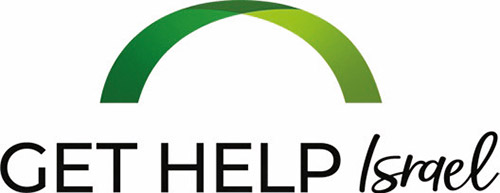
From learning Hebrew to acclimating to a new school or community, making aliyah can trigger significant stresses on olim adjusting to life in a foreign country. According to Israel’s Health Ministry, one-third of suicides in the country are committed by olim. Mental health challenges are often compounded by bureaucracy and the difficulties of navigating the Israeli medical system. But thanks to The Israel Association of Mental Health Professionals, also known as Get Help Israel, English-speaking olim do not have to struggle alone
Get Help Israel began as a social media experiment when psychotherapist Tanya Prochko, who made aliyah from Los Angeles in 2012, launched a Facebook group for over 200 English-speaking mental health professionals to network and share referrals. In January of 2016, Prochko convened an in-person gathering for networking purposes and to brainstorm ideas “to make the system a little easier” for Anglos seeking mental health support. Following the feedback shared at the event, Prochko created a directory of over 300 English-speaking mental health professionals.
The directory soon turned into a comprehensive online portal that matches clients with English-speaking therapists and support groups and offers mental health resources in English, making it possible to navigate mental health challenges with greater ease.
Prochko understood from her own experiences that it isn’t only Anglo olim who require help navigating the system, but also Anglo therapists who arrive in Israel from a different culture and country and often feel lost when entering the field in Israel. Today, working in partnership with the Ministry of Health, Get Help Israel also serves as a resource for English-speaking mental health professionals by providing them with tools, guidance and professional development opportunities to help them serve their clients with the highest standards.
Prochko is proud that over 170,000 mental health consultations have been made via Get Help Israel since its founding. She emphasized that populations struggle in different ways. Children and teens may experience challenges with social integration. Lone soldiers may face strains as a result of being far from home on top of the stresses that come with military life. Couples may experience tensions over employment challenges. Individuals coming with existing diagnoses may have trouble navigating medications and mental health assessments. “We definitely see that aliyah and mental health are very strongly correlated,” Prochko explained.” “There is just a need for olim to have that advocacy.”
Professionals with Get Help Israel have fielded calls from desperate friends and family members seeking immediate help for loved ones threatening suicide. They have organized support groups for students and young adults in Gap Year programs to address traumatic events such as rape or suicide. During emergency situations such as rocket barrages in Israel’s South, Get Help Israel has operated hotlines staffed by volunteer therapists.
According to Prochko, there are numerous steps the government can take to ease some of the challenges olim experience when navigating the system. One critical step is to create more in-patient facilities. These centers are often at full capacity, meaning that individuals who require care must wait, often for a lengthy period of time, until a spot becomes available. In due time, she also hopes to see more affordable private therapy services that are subsidized by the HMOs.
Navigating healthcare in any language is a challenge, and Prochko hopes that Get Help Israel will continue to give English-speaking olim the peace of mind they need when encountering the bumps along the road in their new home. “We really just want to make mental health services as easy and accessible as possible,” she summed up.
For more information visit https://gethelpisrael.com/
Alisa Bodner is a Fair Lawn native who immigrated to Israel a decade ago. She is a nonprofit management professional who enjoys writing in her free time.








